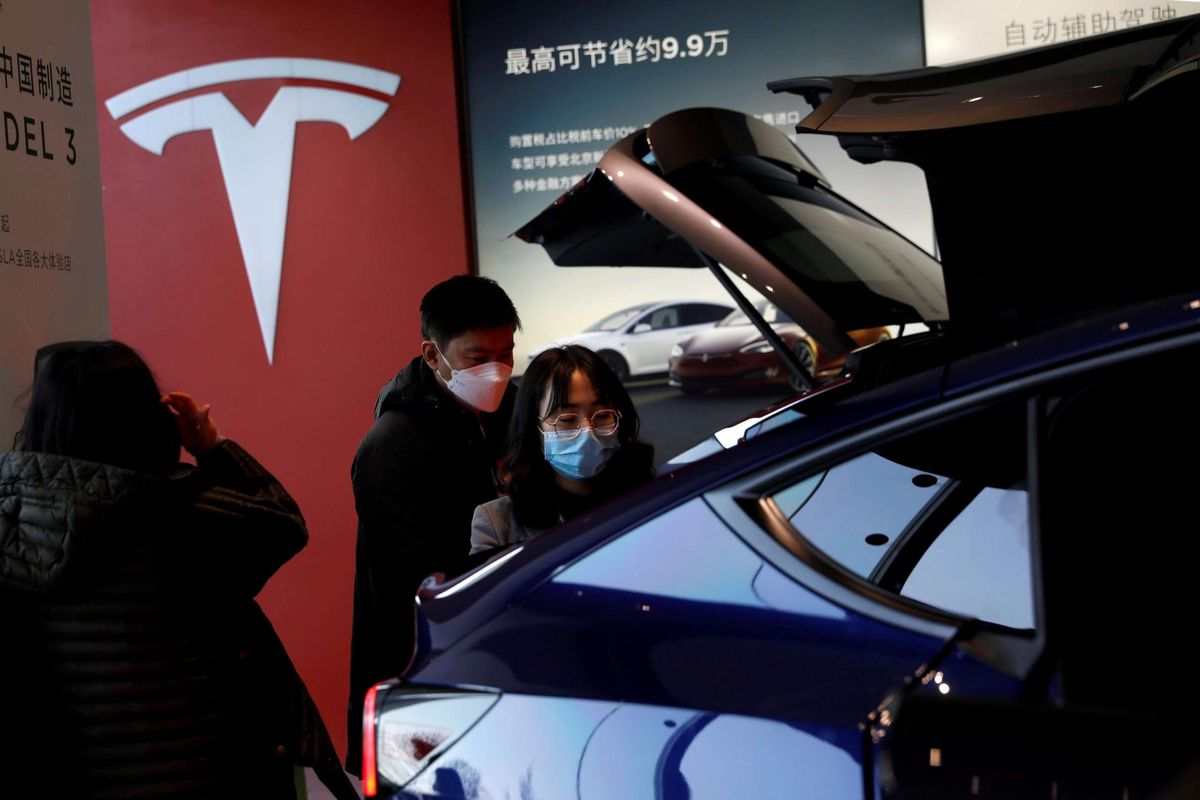Tesla rules the Chinese electric vehicle market

A few minutes every morning is all you need.
Stay up to date on the world's Headlines and Human Stories. It's fun, it's factual, it's fluff-free.
In recent years, China has increased its efforts at becoming the world’s leading electric vehicle (EV) producer and it has succeeded.
The new motor city of this century might be in China. As incomes grow and the Chinese economy evolves, China has become the largest auto market in the world.
Despite China being the world’s largest car market, it is remarkably difficult to get a car in many places there. The population of the metropolitan areas such as Beijing and Shanghai are larger than many countries, despite their relatively condensed size.
The results are some of the worst traffic congestion and air pollution in the world. Aiming to mitigate this, the Chinese government has set a high price for citizens wanting to drive.
Residents of Shanghai who want to get behind the wheel often pay more than US$12,000 just for the license plate needed to own a vehicle, while residents of Beijing must enter a lottery.
However, those obstacles are reduced for those willing to go green.
The rise of EVs
In recent years, China has increased its efforts at becoming the world’s leading electric vehicle (EV) producer and it has succeeded.
China is the world’s largest EV producer and is home to the second-largest EV market in the world after the European Union. Replacing traditional vehicles with EVs could help alleviate the poor air quality found in many of China’s megacities. Furthermore, the fact that oil depletion is inevitable and that EVs will accordingly come to dominate future roadways has not been lost on Chinese investors who have planned for Chinese command of the auto market by nurturing the EV industry.
Leadership in Beijing has prioritized control of lithium and the rare earth elements necessary to produce EVs, aware that a Chinese populace transported by EVs will lessen the potential damage caused by a potential energy cutoff, a fear that inspires Beijing’s foreign policy.
To meet these challenges, Chinese EV companies are vying to meet the future demands of the country’s residents. NIO, an all-electric automaker, provides Chinese consumers customizable options to meet their needs. Another Chinese company, BYD (Build Your Dream) has also jumped into the fray and is a leader in producing electric buses that can be found everywhere from China to Columbia and California. There are also traditional automakers entering the EV market. Like GM, Greely, which owns Volvo, has introduced an electric SUV in hopes of diversifying the higher end of the EV market.
However, the undisputed champion of the EV market both in China and abroad is Tesla.
“China rocks”
Tesla has been afforded luxuries not often given to foreign companies. As a strict lockdown was implemented to inhibit the spread of COVID-19, work on the new Tesla factory in Shanghai was allowed to continue.
And, while much of the rest of the economy came to a grinding halt, Tesla, with the help of Beijing, became more productive than it was even before the pandemic, helping to contribute to Elon Musk’s briefly becoming the world’s richest man earlier this year.
Musk has been quoted as saying “China rocks,” which was enthusiastically echoed by Chinese media. Musk has even been considered for permanent residence in the People’s Republic.
Chinese investors and consumers have returned the love. Tech giant Tencent owns 5% of Tesla. Despite Indigenous EV startups like Nio and BYD having home field advantage, Tesla reigns supreme in the Chinese market.
However, Beijing wants China to be the world’s technology leader and the EV industry is no exception. Chinese EVs produced by NIO and Li Auto now have longer ranges than their American competitor, which indicates that Tesla’s dominance may soon fade.
But until the market catches up with them, Elon Musk and Tesla are showing the world that it pays to be Beijing’s friend.
Have a tip or story? Get in touch with our reporters at tips@themilsource.com




Comments ()